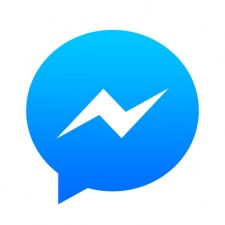It's been nearly a year since Facebook brought games to its Messenger app under the name Instant Games.
Instant Games are playable at the tap of a button within the app, without the need for any additional downloads, and are designed to augment Messenger's central social function.
The platform rolled out without monetisation in November 2016, instead selling developers on the prospect of getting their games frictionlessly embedded on a platform that already had over one billion users.
With that figure now up to 1.3 billion, Facebook is finally beginning to introduce monetisation on select games – most notably Blackstorm Labs' EverWing, which now features interstitial and rewarded video ads as well as early testing for in-app purchases.
It was of course only a matter of time before Facebook introduced such measures, but how will the social media giant be reflecting on the platform's evolution over the past 11 months?
Off to a flyer
Reports from Instant Games developers immediately suggested that this was a scheme with legs. Spil Games' Endless Lake, recognised in Facebook's own Game of the Year 2016 round-up, attracted 12 million players in its first three weeks, racking up a total of 33 million games played.
But this, as Facebook itself acknowledged, was the cream of the Instant Games crop.
“If you look at the numbers playing the 17 games made available at launch, you will see a huge difference between the best and the worst,” Spil CEO Tung Nguyen-Khac told PocketGamer.biz.

Of course this disparity is nothing new for the mobile space, and those companies that dominate the app stores were also quick to stake a claim on Instant Games.
Zynga was one of these, its multiplayer basketball game Hoops Against Friends launching on Messenger in March 2017. In just one day, over 7.5 million matches had been played by more than 61,000 teams.
Zynga followed this by bringing a version of Words with Friends – arguably its best-known property – to the platform in May 2017. All told, it's brought around 20 games to chat app platforms.
“If you look at what's happening in Asia with WeChat, it's obviously a huge business and rivals app stores on iOS and Android,” Zynga's VP of Games Vaibhav Sahgal told PocketGamer.biz back in May.
“So I think the opportunity is massive… we're starting to see the very early stages of that.”
Made to measure
But it's little surprise that the real star of Instant Games so far has not been Zynga or another of the mobile industry giants, but a company that saw this trend coming and made tackling it its mission.
This company is Blackstorm Labs, developer of what it calls “post-app store technology” and the Facebook Instant Games title EverWing.
Apps like WeChat are so influential in Asia because they engage users for hours.
It's no coincidence that EverWing is one of the first games to trial Facebook Instant Games' new monetisation. It's been the platform's poster child from the off and has been at the forefront of developments such as cooperative play and chat bot integration.
But its most significant achievement to date – particularly from Facebook's perspective – will have been the statistic that as of March, the averaged retained user in EverWing played the game for an hour per day.
This, for Facebook, is huge. One of the reasons that chat apps like WeChat are so influential in Asia is that they offer enough functionality – of which games are a key part – to engage users for hours at a time.
Indeed, Facebook's crusade over the past two years has been not just to boost Messenger's monthly active users, but also to increase the amount of time those users are spending. Instant Games is just one part of this.
More to do
In March, Facebook rolled out Messenger Day as its own answer to Snapchat Stories. This year has also seen the app introduce connectivity with Spotify for creating group playlists, temporary live location sharing and a Fandango extension for buying movie tickets.
Facebook's next plan is to make Messenger the destination for customer support, helping brands to engage with their customers' queries using chat bots and providing a more convenient alternative to phone support for younger people.
So what does this all have to do with games? Simply, chat apps in Asia have only been so influential in the mobile gaming space because they dominate so much of the time spent on mobile devices.
This is a model that Facebook is obviously following with Messenger, and it's on the right track.
When the app hit 1.2 billion MAUs in April, Facebook's VP of Messaging David Marcus added that “we increased engagement massively in terms of number of messages sent per active user. We had double-digit growth percentage-wise.”
Encouraging noises
In terms of what Facebook is trying to achieve with the platform overall, this is just as significant as the headlining figure.
WeChat gobbles up a whopping 29% of all time spent in mobile apps in China.
WeChat has fewer MAUs than Messenger, with 938 million as of May, but it also gobbles up a whopping 29% of all time spent in mobile apps in China.
And it's no coincidence that WeChat parent company Tencent is a world leader in the mobile games space, with the success of its games in China regularly attributed to the power and reach of the messaging platform.
This will not have been lost on Facebook when it decided to roll out Instant Games and it's something it will be keeping in mind as the platform matures.
Instant Games may be at present considered a diminutive platform, and it remains to be seen how effectively it will monetise, but Facebook is all the while becoming better positioned to put its stamp on mobile gaming in a major way.






















